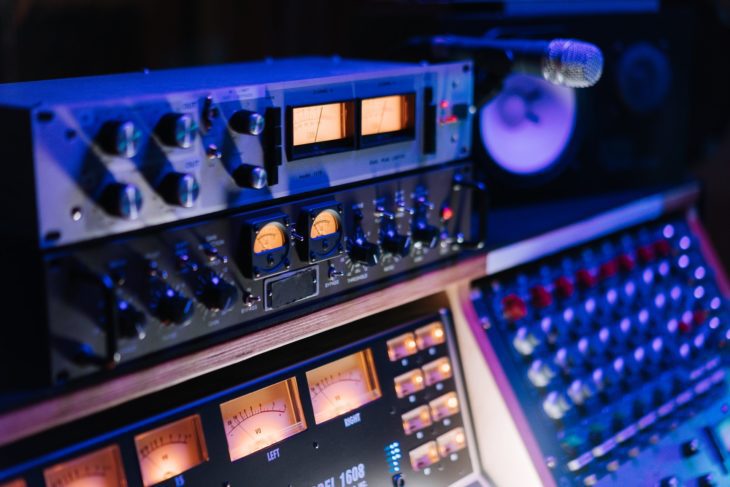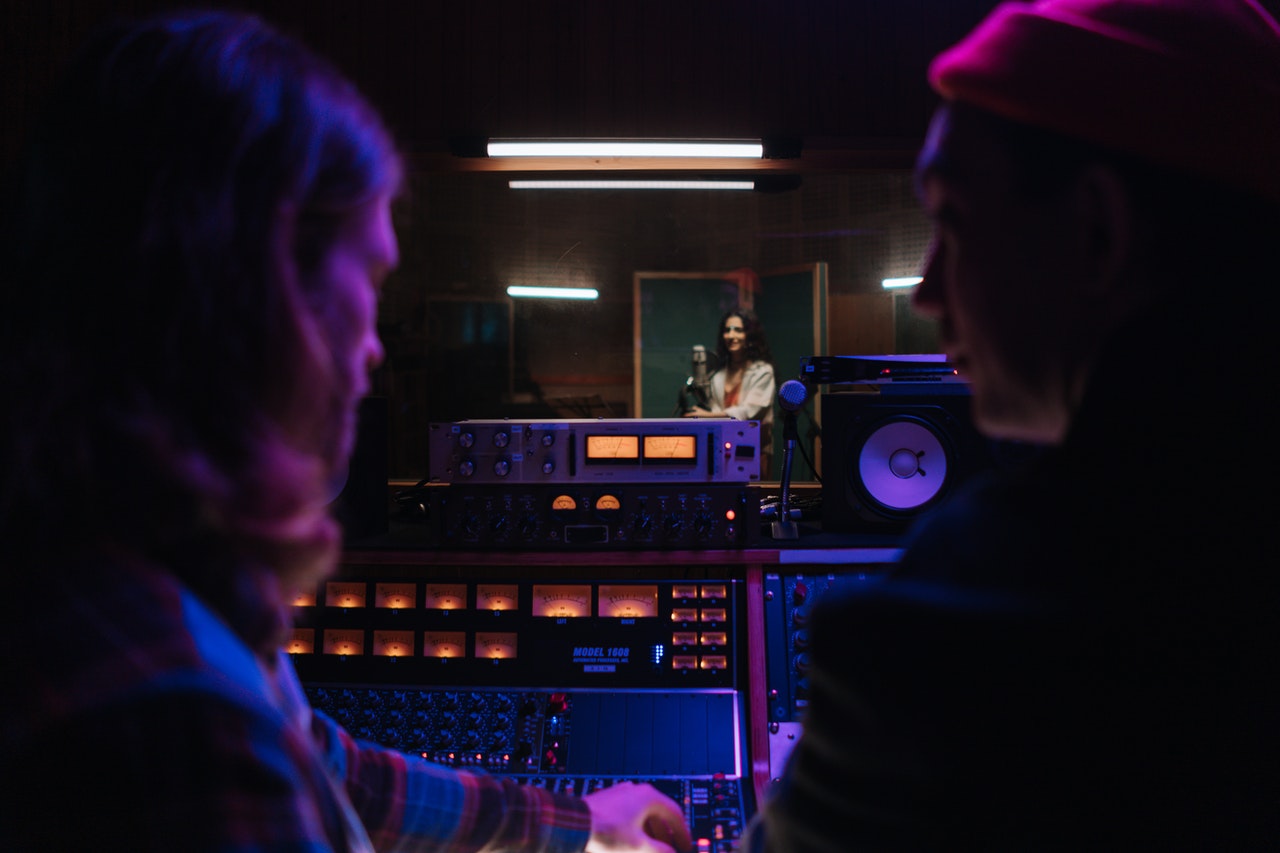The top 10 most famous film scores of all time
New post

In this article you will learn more about mastering and what you need to keep in mind. You'll also get valuable mastering tips to take your project to the next level. But before we start, the question arises:
Musicians who have not been in the professional music business for very long tend to confuse or mix up the terms "mixing" and "mastering". Increasingly, producers are offering package prices for mixing and mastering, and the boundaries between these two different activities are becoming blurred. Many people intuitively understand what mixing is - the mixing of recorded music into an (almost) finished end product. But what is mastering then?
The profession of mastering engineer has its origins in the days of analogue media. In order to transfer a finished mix to a master tape, for example, the music had to meet certain technical specifications to guarantee a smooth transfer without noise, distortion, and other errors. This was especially true (and still is) for vinyl records. For example, too much bass on a finished pressed record can cause the needle to jump out of the groove, causing unwanted time jumps in the song. To avoid such errors, there are vinyl cutting engineers.
In those days, the music had to be prepared for transmission and pressing, and as time went on, the technicians in charge realized that the sound could be optimized even more for the particular medium used if further post-processing was done with EQs, compressors and other devices. As audio quality continued to increase, so did the technical post-processing of songs, and so this process evolved into what we now understand as mastering:
An artistic and technical post-processing of the final audio mix that ensures playback in optimal sound quality on any playback medium.
If you think to yourself now:
"Well... But if I just want to release my music on Spotify, it's not as important as it used to be. If I don't have physical records, it's not as complicated."
Well, I can only agree with you to a certain extent. There are now many different forms of playback media used, like streaming, CDs, vinyl, Bluetooth speakers, car radios, headphones, hi-fi systems, and many more. So it still makes sense to have your music mastered at a professional mastering studio, as the engineers there have a great deal of expertise in modern playback media and will make sure your music sounds as good as possible in any scenario. There are also still quite a few mistakes that can be made in mastering. While very few studios still work with tape, even in the digital world there are important technical details that need to be taken care of. That's why I want to give you some mastering tips in this article: Why it makes sense to look for a professional engineer, and what other problems can arise.
Imagine you're an amateur chef. I like to use this metaphor because I find that cooking and producing music have a surprising amount in common. With the small difference that you digest the food quickly, but a song may be heard for decades to come.
The rough recipe is the song, the kind of ingredients are the sounds, and the amounts of ingredients and little tweaks are the mixing. In that context, the seasoning and dressing would be the final process—the mastering.
I'm sure you'll agree with me on this one: "It doesn't matter how good your ingredients are, and how much effort you put into cooking... If you serve everything on plastic plates and slap way too much salt on it, you'll mess up every dish."
Just as the quality of a dish can only be as high as its ingredients, a master can only be as good as the song and the mix. While a really good master can turn a really good mix into a fantastic end result, a really bad master can pretty much ruin even the best mix. So this is a very critical component in the process of creating music. That's why mastering requires extreme precision and expertise, as it is the final process in music production.
So you shouldn't cut corners at this end of the process, but I still see young musicians shifting their priorities a bit. No guitarist hesitates long to buy his dream guitar, or to spend hundreds of euros on pedals. But a master for 100€ is often considered too expensive, even though you can divide the mastering costs among all of the band members. And one thing is often forgotten: The most important thing is how you play your instrument anyway, not which instrument you play. John Mayer is John Mayer when he plays a Squier.
Professional studios have special equipment anyway, including guitars and pedals. So it makes sense for aspiring artists to spend their money on a professional producer, a good mixer, and a mastering studio. After all, the product that musicians sell (or stream) at the end of the day is the music itself—it should be of the best possible quality. Quality provides the best conditions for growth, which in turn brings more money. A mediocre production with expensive instruments sounds worse than a really good production with mediocre instruments. What really counts in the studio is the song, the skill of the musicians, and the skill of the producer. High quality produced music is an investment in the future of the band or artist and therefore essential for musicians who want to become professionals.

Back to the topic of mastering tips: This little digression on the subject of financial planning and mindset has certainly made it clear to you why it's a good idea to use professionals as an accelerant for your own career, and not to save money at the wrong end. But let's assume the opposite for a moment—I would now like to give you a few examples of the problems that can arise from incorrect mastering:
Spotify, Apple Music, and the like have a digital algorithm that ensures that all music played on the platforms sounds the same. This is called loudness normalization. You can listen to a classical song first and then a metal song, for example, and it won't blow your ears off, even though the metal song is technically mastered louder and has much less dynamics. Streaming services have technical specifications for the level of the music, which a professional mastering engineer is aware of. If the level of your song is not adjusted to match the genre, it may sound quieter and less impressive in comparison than similar songs on the platform, because your song is affected differently by the loudness normalization.
One of the most important rules of mastering is that the bass range must be almost exclusively mono. There are several reasons for this. The most important one is that music systems with a dedicated subwoofer sum the stereo signal of your music to a mono signal for the sub. If the bass range is processed incorrectly, this can lead to so-called cancellations due to phase problems. Put simply, this means that part of the bass simply disappears. And to varying degrees, depending on the playback situation. This means that it is completely uncontrolled and sounds undefined and muddy.
Incorrect or excessive use of mastering tools can lead to audible problems in the audio signal (intersample peaks and clipping). This manifests itself with subtle distortions of your song at particularly loud points, or even clicks and pops. These problems are especially common in bass-heavy genres like rap music, as long-wave 808s are particularly prone to faulty distortion.
Audio mastering has also become a very artistic business. And dealing with compression and EQ is very different from mixing. So your song might just sound a bit weird and muddy if you have it mastered by an inexperienced mastering engineer.
That all sounded pretty negative... but don't worry. A professional mastering engineer will take all that (and much more) into account, spare you the technical details, and create a beautiful sounding song. That would be great, wouldn't it? And to make sure that happens, I'd like to give you a little guide on how to make your next master a real success.
Great! Now you are well prepared to have your song professionally mastered. I'll give you a little tip: Some mastering studios offer free demo masters for new customers, so you can get an impression of their work without any risk. You'll usually get half the song back, or a version with an audio logo, and can then decide if you want to buy it or not.
Maybe you're lucky and the future mastering studio you trust offers it. If you would like to have a demo master from me, just message me via mukken! By the way, here you can also find all kinds of other music producers and musicians you can connect with to advance your music career or just have a hell of a lot of fun. By the way, if you're ready for your first master, I highly recommend this article by my studio colleague Alex from Hamburg. He has some additional mastering tips in store: Valuable suggestions on what you should pay attention to when listening to your new master for the first time.
Ursprünglich veröffentlicht am 14. July 2023 aktualisiert am 20. July 2023
Main topic: Mastering Tips: Why you should master your music
Originally published on July 14, 2023, updated on July 20, 2023
Main topic: Mastering Tips: Why you should master your music
